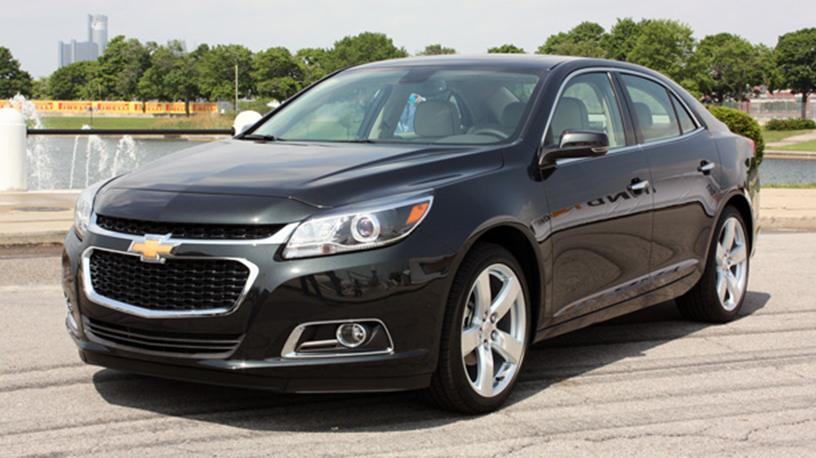Chevy has added text-to-voice capability to the 2014 Chevy Malibu as the General Motors division tries to improve the overall profile of the mid-sized sedan in year-two of its product cycle.
Besides a text-to-voice feature, which reads text messages over the car’s audio system, and allows hands-free responses via the Chevy MyLink system, Chevy has added standard stop-start and a variable intake valve and transmission enhancement to achieve greater fuel economy.
“The midsize sedan segment is one of the most competitive in the industry and by improving the Malibu so quickly, we’re proving to our customers that we’re listening and acting on their needs,” said Chevrolet Global Chief Marketing Officer Tim Mahoney. “The new and enhanced features make the 2014 Malibu a smarter choice, putting it at the heart of the strongest Chevrolet passenger car lineup in our history.”
The Malibu was redesigned for the 2013 model year, but has been a bit disappointing in terms of sales and transaction prices. The problem is that the mid-sized sedan category has become more of a dog-fight than ever with stellar entries: Ford Fusion, Honda Accord, Toyota Camry, Hyundai Sonata, Nissan Altima and the newVolkswagen Passat. Even a stronger Mazda6 is making it tougher for Chevy.
Year-to-date, Malibu sales are down 13.3% through September, while Ford Fusion sales are up 17.1%. Honda Accord sales are up 14%, and Nissan Altima sales are up 7.1%. But maybe things are turning around for Malibu as sales were up 40.7% in September versus the same month a year earlier.
Chevy says its new Ecotec 2.5L four-cylinder engine is the first standard engine in the segment with stop/starttechnology. The system, which is being phased into dozens of new cars across the industry, conserves fuel by automatically shutting off the engine when the car comes to a stop, such as at stoplights. The engine automatically restarts when the driver takes his or her foot off the brake. In the Malibu’s case, the system helps the sedan to an EPA-estimated fuel economy of 25-mpg city and 36-mpg highway – a 14-percent improvement in city mileage and 6 percent greater highway efficiency.



